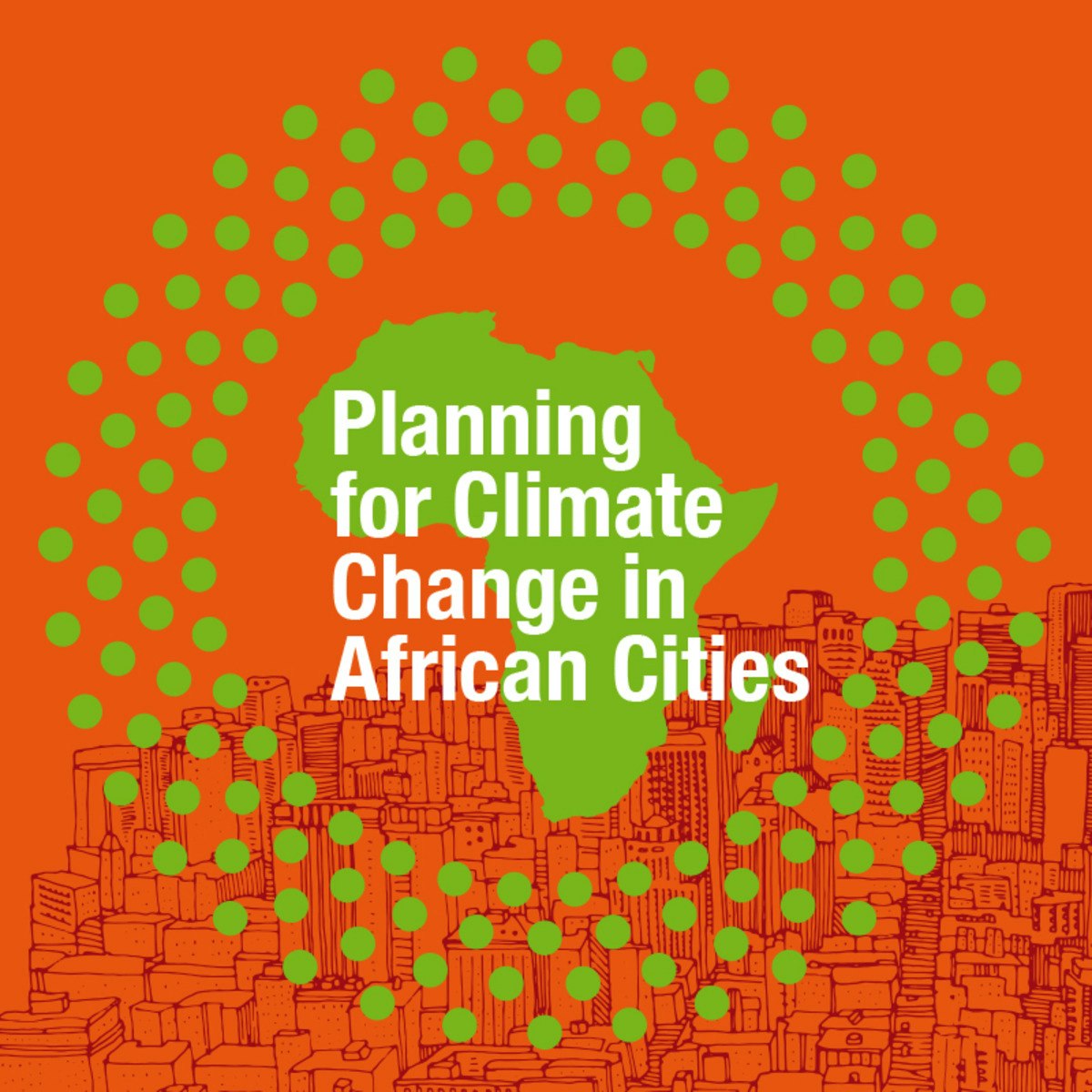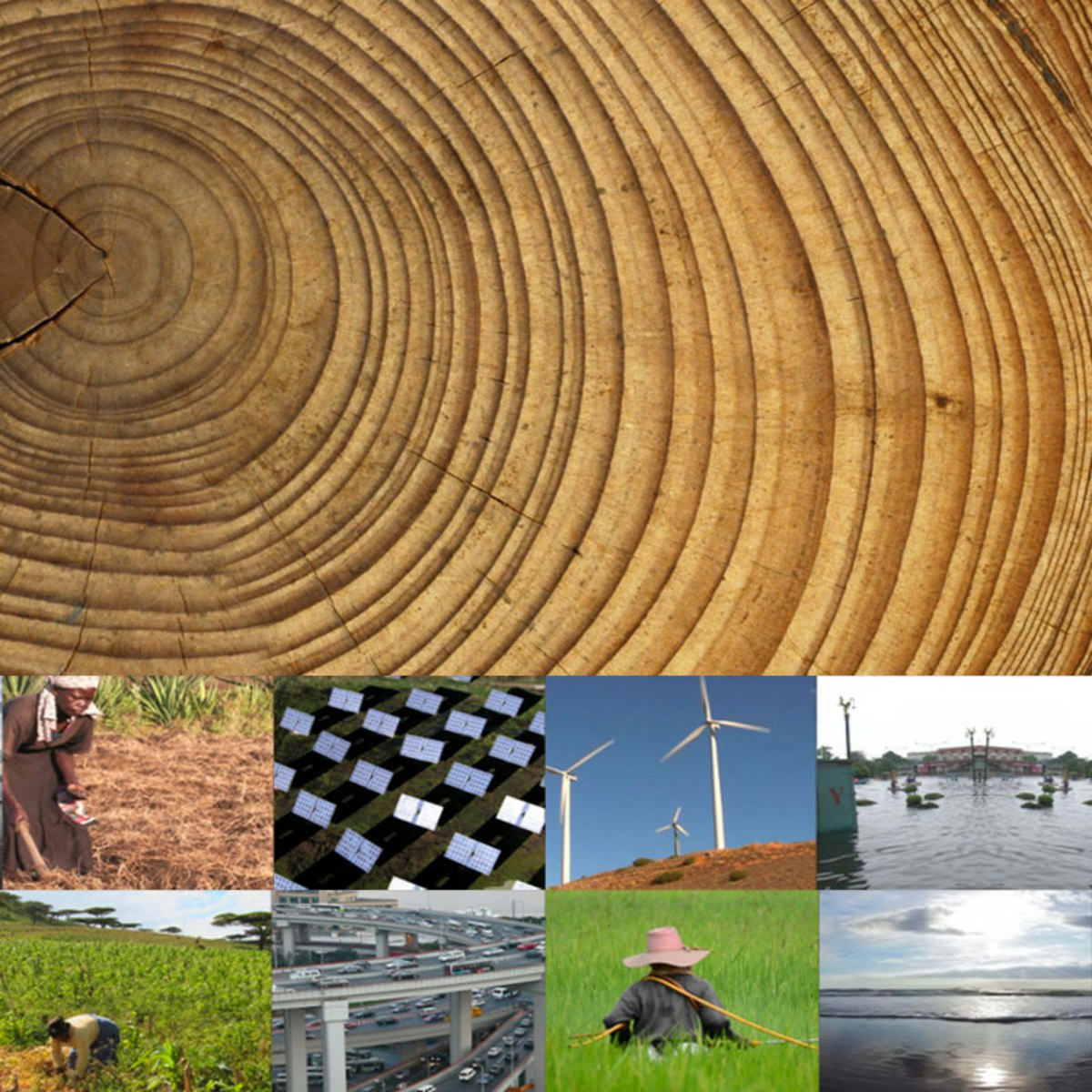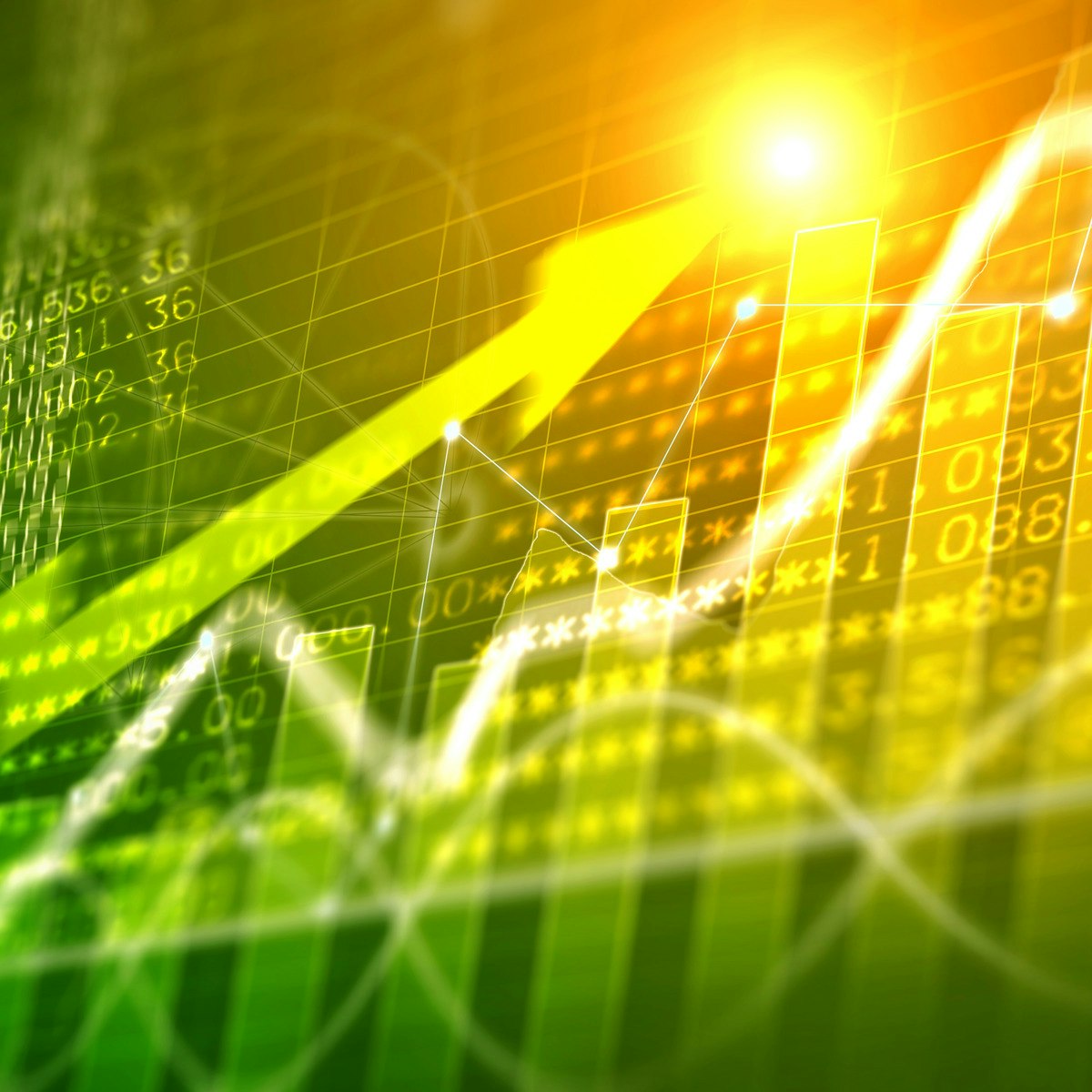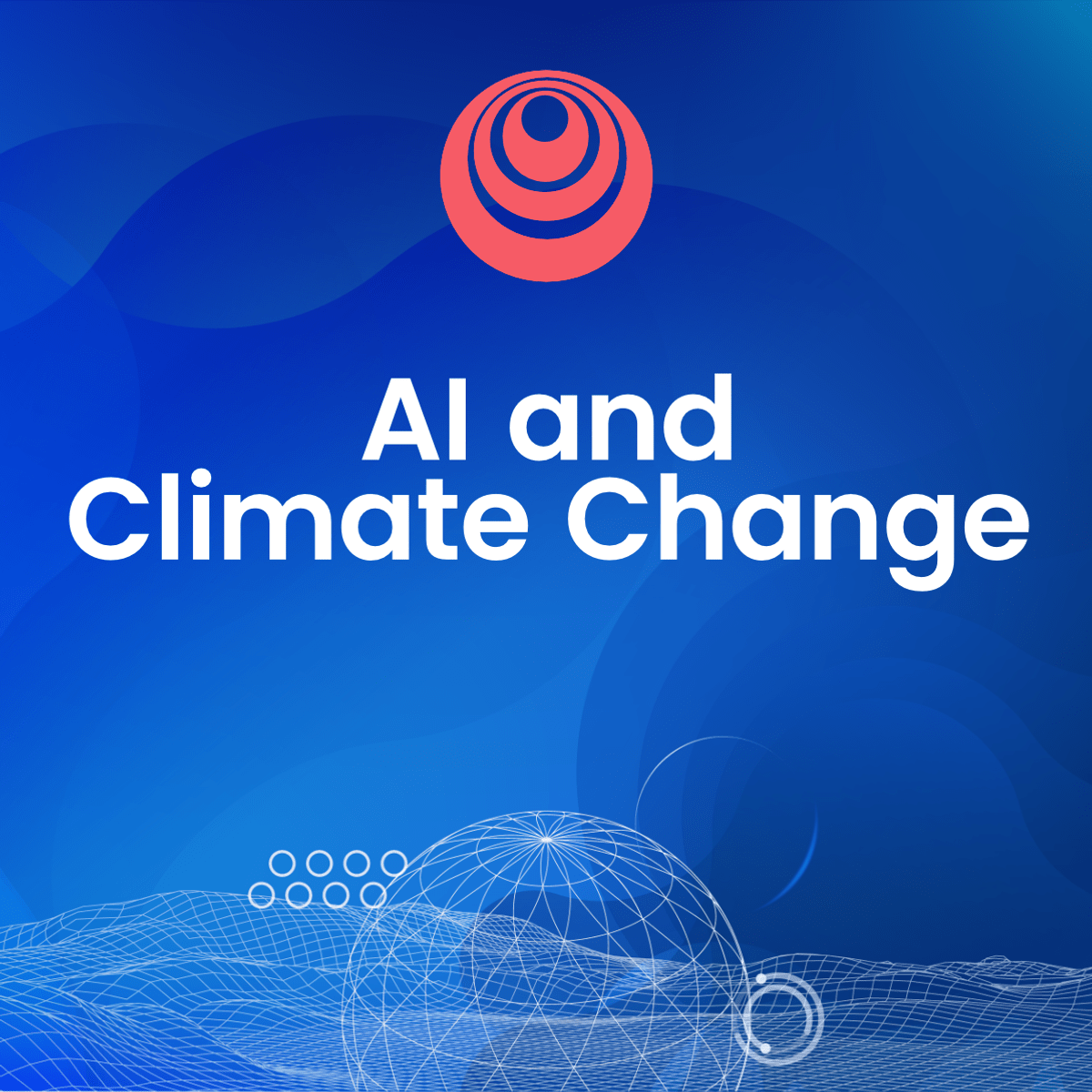Climate Policy Analyst
A Career Guide to Climate Policy Analysis
Climate Policy Analysts play a crucial role in navigating one of the most complex challenges of our time: climate change. They work at the intersection of science, economics, politics, and law to understand climate impacts and devise strategies for mitigation and adaptation. This involves researching environmental issues, evaluating potential policy solutions, and advising decision-makers in governments, non-profits, and the private sector on effective courses of action.
Working in this field can be deeply rewarding. You might find yourself analyzing the potential of renewable energy technologies, designing carbon pricing mechanisms, or helping communities adapt to rising sea levels. It's a career path that offers intellectual challenges and the opportunity to contribute directly to shaping a more sustainable and resilient future for societies across the globe.
Introduction to Climate Policy Analysis
Understanding the fundamentals of climate policy analysis is the first step towards engaging with this critical field. It involves examining the processes, effectiveness, and implications of actions taken to address climate change.
What is Climate Policy Analysis?
Climate policy analysis is the systematic study of policies aimed at addressing climate change. This includes evaluating measures to reduce greenhouse gas emissions (mitigation) and strategies to cope with the unavoidable impacts of a changing climate (adaptation). Analysts assess the environmental effectiveness, economic efficiency, social equity, and political feasibility of different policy options.
The scope is broad, covering international agreements, national legislation, regional initiatives, and local actions. It draws on diverse disciplines like environmental science, economics, political science, law, and sociology to provide a comprehensive understanding of climate challenges and potential solutions. The goal is to inform better decision-making by clarifying trade-offs and potential outcomes.
Essentially, analysts ask: What actions can we take? What are the likely consequences? How do we choose the best path forward given scientific evidence, economic constraints, and societal values? It’s about providing evidence-based guidance in a complex and rapidly evolving landscape.
A Brief History of Climate Policy
Concerns about human impact on the climate emerged gradually, gaining scientific traction in the mid-20th century. Early international discussions began in the 1970s, leading to the first World Climate Conference in 1979. This set the stage for establishing the Intergovernmental Panel on Climate Change (IPCC) in 1988 to assess climate science.
The 1992 United Nations Framework Convention on Climate Change (UNFCCC) marked a pivotal moment, creating a structure for global cooperation. This was followed by the 1997 Kyoto Protocol, which set binding emission reduction targets for developed nations. However, its implementation faced significant political and economic hurdles.
These early efforts highlighted the complexities of international climate negotiations, balancing national interests with collective environmental goals. The lessons learned shaped subsequent attempts to build a more inclusive and effective global climate regime, acknowledging the diverse capacities and responsibilities of different nations.
Understanding Key Global Agreements
The Paris Agreement, adopted in 2015 under the UNFCCC, is the cornerstone of current global climate policy. Its central aim is to keep global temperature rise this century well below 2 degrees Celsius above pre-industrial levels, while pursuing efforts to limit the increase to 1.5 degrees Celsius. Unlike Kyoto, it involves commitments from nearly all countries.
A key feature is the use of Nationally Determined Contributions (NDCs), where each country sets its own emission reduction targets and outlines its climate actions. These NDCs are reviewed and strengthened every five years through a "global stocktake" process. The agreement emphasizes transparency, adaptation, climate finance, and technology transfer.
Understanding the Paris Agreement's structure, goals, and mechanisms is fundamental for any climate policy analyst. It shapes national policies and international cooperation, influencing everything from energy investments to conservation efforts worldwide. You can find detailed information on the UNFCCC website.
These foundational courses offer insights into the science, economics, and policy dimensions of climate change, providing essential context.
For deeper reading on the scientific basis and policy responses, these books are highly recommended.
The Analyst's Role in Addressing Climate Change
Climate policy analysts provide the critical link between scientific knowledge and practical action. They translate complex climate science and economic data into understandable terms for policymakers and the public. Their analysis helps identify the most effective and efficient ways to reduce emissions and adapt to climate impacts.
They contribute by designing policies like carbon taxes or emissions trading systems, evaluating the impact of renewable energy incentives, or assessing the vulnerability of infrastructure to climate change. They also facilitate dialogue among different stakeholders, helping to build consensus and navigate political obstacles.
Ultimately, their work aims to ensure that climate policies are grounded in evidence, economically sound, socially equitable, and politically viable. They help societies make informed choices in the face of uncertainty and significant long-term consequences, contributing directly to efforts to stabilize the climate.
Role of a Climate Policy Analyst
Delving deeper, we explore the specific functions, work environments, and interdisciplinary nature of the Climate Policy Analyst role. This section clarifies what the job entails on a practical level.
Core Duties and Responsibilities
The primary duty of a climate policy analyst is research and analysis. This involves gathering data on emissions, climate impacts, economic costs, and technological options. They use this information to evaluate existing policies and model the potential effects of proposed ones.
Policy design is another core function. Analysts develop specific policy proposals, such as regulations, incentives, or market-based mechanisms, tailored to address particular climate challenges. This requires creativity, technical knowledge, and an understanding of political realities.
Stakeholder engagement is also crucial. Analysts often communicate their findings to government officials, industry representatives, environmental groups, and the public. This involves writing reports, giving presentations, and participating in meetings to explain complex issues and build support for effective climate action.
Where Do Climate Policy Analysts Work?
Climate policy analysts find employment across various sectors. Governments at all levels – international, national, regional, and local – hire analysts to develop and implement climate strategies. This includes environmental agencies, energy departments, and legislative bodies.
Non-governmental organizations (NGOs), including environmental advocacy groups and research institutions (think tanks), rely heavily on analysts to conduct research, shape policy debates, and monitor government action. These roles often involve significant public communication and advocacy.
The private sector increasingly employs climate policy analysts. Consulting firms advise businesses on navigating climate regulations and identifying opportunities in the green economy. Corporations also hire analysts internally to manage climate risks, develop sustainability strategies, and engage with policymakers on climate-related issues.
Intersection with Science, Economics, and Law
Climate policy analysis is inherently interdisciplinary. A strong understanding of climate science is essential to grasp the physical processes driving climate change and the potential impacts of different emission scenarios. Analysts must be able to interpret scientific findings and assess their policy relevance.
Economics provides tools for evaluating policy efficiency and distributional impacts. Concepts like cost-benefit analysis, carbon pricing, and economic modeling are central to assessing climate policies. Understanding market dynamics and behavioral responses is key to designing effective interventions.
Knowledge of law and regulation is also critical. Analysts need to understand legislative processes, administrative law, and international agreements governing climate action. They must consider legal feasibility and potential challenges when designing and implementing policies.
This course explores the economic dimensions of environmental policy.
These books delve into the complexities of climate change impacts and legal frameworks.
A Day in the Life
The daily tasks of a climate policy analyst can vary significantly depending on their employer and specific role. A typical day might involve reading scientific reports, analyzing emissions data using spreadsheets or specialized software, and modeling the economic impacts of a proposed regulation.
Much time is often spent writing: drafting policy briefs, reports, memos, or presentations to communicate findings clearly and concisely. Attending meetings with colleagues, policymakers, or external stakeholders to discuss research, collaborate on projects, or present analysis is also common.
Staying updated on the latest climate science, policy developments, and technological innovations is an ongoing part of the job. This might involve reading academic journals, attending webinars, or participating in conferences. The work often requires balancing deep analytical tasks with communication and collaboration.
Key Responsibilities and Specializations
Within the broad field of climate policy analysis, professionals often develop specific areas of expertise. Understanding these specializations can help aspiring analysts align their skills and interests with particular career paths.
Policy Evaluation and Impact Assessment
A core responsibility is evaluating the effectiveness of existing or proposed climate policies. This involves assessing whether a policy achieved its intended environmental goals, such as reducing emissions by a certain amount. Analysts use quantitative and qualitative methods to measure outcomes.
Impact assessment goes beyond environmental effectiveness to consider broader consequences. Analysts examine the economic costs and benefits, effects on different social groups (equity impacts), and potential unintended consequences. This helps policymakers understand the full range of trade-offs associated with different options.
Methodologies like cost-benefit analysis, lifecycle assessment, and integrated assessment modeling are common tools. Rigorous evaluation provides crucial feedback for refining policies and ensuring resources are used effectively in the fight against climate change.
This course introduces methods applicable to evaluating policy impacts, particularly in development contexts.
Focusing on Mitigation vs. Adaptation
Analysts often specialize in either climate change mitigation or adaptation. Mitigation focuses on reducing the sources or enhancing the sinks of greenhouse gases. This involves policies related to energy efficiency, renewable energy deployment, deforestation, and industrial processes.
Adaptation, conversely, deals with adjusting to the actual or expected effects of climate change. This includes strategies to manage impacts like sea-level rise, increased frequency of extreme weather events, and changing agricultural conditions. Examples include developing drought-resistant crops or improving coastal defenses.
While distinct, mitigation and adaptation are interconnected. Effective long-term strategies require both reducing future warming and preparing for the impacts already underway. Some analysts work across both areas, particularly on policies with co-benefits for mitigation and adaptation.
This course provides an overview of managing climate change, covering both mitigation and adaptation.
Sector-Specific Specializations
Climate policy often requires deep knowledge of specific economic sectors. Many analysts specialize in areas like energy, transportation, industry, agriculture, or buildings, as these are major sources of greenhouse gas emissions.
An energy sector specialist might analyze policies promoting solar and wind power or phasing out coal plants. A transportation analyst could focus on electric vehicle incentives or public transit expansion. An industrial policy expert might examine regulations on emissions from manufacturing processes.
Developing expertise in a particular sector allows analysts to understand the unique technical, economic, and political challenges involved. This specialized knowledge is crucial for designing effective and feasible policies tailored to the specific context of that sector.
This course focuses on the transition within the crucial energy sector.
International vs. Domestic Policy
Another area of specialization relates to the geographic scope of policy. Some analysts focus on international climate policy, working on global agreements like the Paris Agreement, climate finance mechanisms for developing countries, or cross-border emissions trading.
Others concentrate on domestic policy within a specific country or region. This could involve analyzing national carbon pricing schemes, state-level renewable portfolio standards, or city-level climate action plans. Domestic policy often requires detailed knowledge of national legal systems and political contexts.
The line between international and domestic policy is often blurred, as global agreements influence national actions, and national policies can impact international negotiations. Many analysts work at the interface, translating global goals into domestic strategies or sharing national experiences on the international stage.
These courses offer perspectives on international negotiations and specific regional contexts.
Formal Education Pathways
A solid educational foundation is typically essential for a career in climate policy analysis. Various academic routes can equip individuals with the necessary knowledge and skills.
Relevant Undergraduate Degrees
Several undergraduate majors provide a strong starting point. Environmental Science or Environmental Studies programs offer foundational knowledge of climate systems, ecosystems, and environmental challenges. These often include coursework in policy and management.
Degrees in Political Science or Public Policy provide understanding of governmental processes, policy analysis frameworks, and political dynamics, which are crucial for navigating the policy landscape. Economics degrees equip students with analytical tools to assess policy costs, benefits, and market impacts.
Other relevant fields include International Relations (for global policy focus), Geography (for spatial analysis and human-environment interactions), or even specific engineering disciplines related to energy or environmental systems. Strong analytical and communication skills are key, regardless of the major.
Explore relevant subject areas on OpenCourser, such as Environmental Sciences and Public Policy.
Graduate Programs: Master's and Beyond
Many climate policy analysts hold advanced degrees. Master's programs in Public Policy (MPP), Public Administration (MPA), or Environmental Management (MEM) are common choices. These programs typically offer specializations in environmental or energy policy and emphasize practical analytical skills.
Specialized Master's degrees in Climate Science and Policy, Environmental Economics, or Sustainable Development provide more focused training. Law degrees (JD) with an environmental law focus are also valuable, particularly for roles involving regulation and litigation.
Choosing a graduate program often depends on career goals. Programs emphasizing quantitative analysis are beneficial for research-heavy roles, while those focused on management and communication might suit roles involving stakeholder engagement or program implementation.
PhD Research Opportunities
A Doctor of Philosophy (PhD) is typically pursued by those interested in academic research, teaching, or high-level research roles in government or think tanks. PhD research allows for deep specialization in a specific aspect of climate policy.
Relevant doctoral programs can be found in departments of Public Policy, Political Science, Economics, Environmental Science, Geography, or interdisciplinary sustainability programs. Research might focus on topics like climate modeling, policy instrument design, climate justice, or international climate governance.
A PhD develops advanced research methodologies and theoretical understanding. While not required for most analyst roles, it provides rigorous training for those seeking to push the boundaries of knowledge in the field or lead complex research initiatives.
Certifications and Supplementary Training
Beyond formal degrees, various certifications and supplementary training opportunities can enhance qualifications. Professional certificates in areas like Environmental Impact Assessment (EIA), Geographic Information Systems (GIS), or specific energy modeling software can add practical skills.
Short courses, workshops, and online programs offered by universities, professional organizations, or platforms like OpenCourser allow individuals to deepen knowledge in specific areas like climate finance, adaptation planning, or renewable energy policy without committing to a full degree program.
Continuous learning is vital in this rapidly evolving field. Staying updated through professional development demonstrates commitment and ensures analysts possess current knowledge and tools relevant to climate policy challenges.
These courses can supplement formal education or provide focused training in key areas.
Online Learning and Professional Development
For those seeking flexible learning options, career pivots, or ways to supplement formal education, online resources offer valuable pathways for developing skills in climate policy analysis.
Developing Core Competencies Independently
Online courses provide accessible ways to build foundational knowledge in climate science, economics, and policy principles. You can learn about the mechanisms of climate change, economic tools for policy analysis, and the structure of key international agreements at your own pace.
Platforms like OpenCourser aggregate courses from various universities and institutions, allowing learners to select modules specific to their needs. This is ideal for filling knowledge gaps or exploring specific topics like renewable energy technologies or climate adaptation strategies without enrolling in a full degree program.
Self-directed learning requires discipline, but it offers flexibility. Focus on developing core competencies like data analysis, understanding policy frameworks, and communicating complex information effectively. Many courses offer certificates upon completion, which can signal acquired knowledge to potential employers.
OpenCourser's Learner's Guide offers tips on structuring self-study and staying motivated.
These online courses cover essential competencies relevant to climate policy.
Project-Based Learning for Practical Skills
Theoretical knowledge is important, but practical application solidifies understanding. Seek out online courses or opportunities that involve hands-on projects. This could include analyzing real-world climate data, simulating policy impacts, or developing a mock policy proposal.
Consider undertaking independent projects related to local climate issues. Research your community's climate action plan, analyze local emissions data, or write a policy brief on a relevant topic. Documenting these projects in a portfolio can demonstrate practical skills to potential employers.
Engaging with interactive tools and simulations offered in some online courses can also build practical experience. The goal is to move beyond passive learning and actively apply concepts, honing analytical and problem-solving abilities relevant to the field.
This book offers practical approaches and solutions, inspiring potential projects.
Combining Online Study with Formal Education
Online learning can effectively complement traditional degree programs. University students can use online courses to deepen understanding of topics covered briefly in lectures or explore specialized areas not offered at their institution.
For those pursuing degrees in related fields like economics or political science, online courses specifically focused on climate change can provide the necessary environmental context and policy knowledge. This can bridge the gap between a general degree and the specific requirements of a climate policy role.
Integrating online learning allows for a customized educational path, blending the structure and networking opportunities of formal education with the flexibility and specialized content available online. This hybrid approach can be particularly valuable for tailoring skills to specific career aspirations within climate policy.
This course combines insights from economics and finance relevant to climate.
Networking Through Virtual Events
Professional development isn't just about acquiring knowledge; it's also about building connections. Many organizations host virtual conferences, webinars, and workshops focused on climate policy. Participating in these events is an excellent way to learn from experts and network with professionals in the field.
Engage actively in online forums or discussion groups associated with courses or professional networks. Sharing insights, asking questions, and connecting with peers and experts can lead to valuable relationships and potential career opportunities.
Building a professional network, even virtually, is crucial for career growth. It provides access to information, mentorship possibilities, and awareness of job openings. Online platforms have made networking more accessible, especially for those unable to attend in-person events regularly.
Essential Skills and Competencies
Success as a climate policy analyst hinges on a diverse set of skills. Mastering these competencies is crucial for effective analysis, communication, and impact in the field.
Data Analysis and Modeling
Strong analytical skills are fundamental. Analysts must be comfortable working with quantitative data, including emissions inventories, climate projections, and economic statistics. Proficiency in spreadsheet software like Excel is essential, and familiarity with statistical software (like R or Python) is increasingly valuable.
Understanding modeling techniques is often necessary. This could range from simple cost-benefit analysis models to more complex integrated assessment models (IAMs) or energy system models. While not all analysts build models, they need to understand their assumptions, interpret their outputs, and grasp their limitations.
The ability to synthesize data from various sources, identify trends, assess uncertainty, and draw evidence-based conclusions is key. Rigorous data analysis forms the bedrock of credible policy recommendations.
This course introduces economic modelling related to climate change.
Communication and Negotiation Skills
Analysts must effectively communicate complex information to diverse audiences, including policymakers, technical experts, and the general public. This requires excellent written and verbal communication skills, including report writing, presentation delivery, and drafting policy briefs.
Translating technical jargon into clear, concise language is crucial. Visualizing data through charts and graphs can also enhance understanding and impact. Active listening skills are important for understanding stakeholder perspectives and concerns.
In many roles, negotiation and facilitation skills are valuable. Analysts may need to help build consensus among stakeholders with conflicting interests or mediate discussions to find common ground on policy solutions. Persuasion based on evidence is a key aspect of the role.
You can explore courses related to Communication Studies on OpenCourser.
Legal and Regulatory Literacy
A solid understanding of legal and regulatory frameworks is essential. Analysts need to grasp how laws are made, how regulations are implemented and enforced, and the structure of relevant international agreements like the Paris Agreement.
Familiarity with environmental law, administrative law, and energy regulation is particularly important. Understanding legal constraints and opportunities helps ensure that policy proposals are feasible and robust.
This doesn't necessarily require a law degree, but analysts must be able to read and interpret legislation, understand regulatory processes, and appreciate the legal implications of different policy choices. This literacy helps bridge the gap between policy ideas and practical implementation.
This course touches upon the intersection of climate change and legal frameworks.
This book provides a comprehensive overview of US climate law.
Systems Thinking and Scenario Planning
Climate change is a complex systemic problem with interconnected environmental, economic, and social dimensions. Analysts need strong systems thinking skills to understand these interdependencies and anticipate potential feedback loops or unintended consequences of policies.
The ability to think holistically about how different sectors (energy, transport, land use) interact and influence overall emissions is crucial. Understanding how climate policies might affect different parts of the economy or society requires a broad perspective.
Scenario planning is also important. Given the uncertainties in climate projections and future socio-economic pathways, analysts often develop and analyze different scenarios to explore potential futures and test the robustness of policy strategies under various conditions. This helps policymakers make decisions in the face of deep uncertainty.
Career Progression for Climate Policy Analysts
The career path for a climate policy analyst can evolve over time, offering opportunities for growth, specialization, and transitions into related fields. Understanding potential trajectories helps in long-term career planning.
Entry-Level Roles
Individuals typically enter the field in roles such as Research Assistant, Junior Analyst, or Policy Associate. These positions often involve supporting senior analysts by gathering data, conducting literature reviews, performing basic analysis, and assisting with report writing.
Entry-level roles provide valuable experience in applying analytical methods, learning about specific policy areas, and understanding the workings of the employing organization (e.g., government agency, NGO, consultancy). They are crucial for building foundational skills and professional networks.
A bachelor's or master's degree in a relevant field is usually required. Internships during studies can significantly improve prospects for securing an entry-level position. Strong research, writing, and quantitative skills are highly valued.
Mid-Career Paths
With several years of experience, analysts can advance to roles like Policy Analyst, Senior Analyst, Project Manager, or Policy Lead. At this stage, individuals typically take on more responsibility, lead specific projects or analyses, and may supervise junior staff.
Mid-career professionals often develop deeper expertise in specific policy areas (e.g., carbon pricing, adaptation finance) or sectors (e.g., renewable energy, sustainable transport). They may engage more directly with policymakers, manage stakeholder consultations, or represent their organization externally.
Roles in policy consulting also become common, advising clients on climate strategy and compliance. Strong analytical capabilities combined with project management and communication skills are key for advancement.
Senior and Leadership Roles
Experienced analysts can progress to senior leadership positions such as Director of Policy, Principal Consultant, Head of Climate Programs, or senior advisory roles in government or international organizations. These roles involve setting strategic direction, managing teams, and overseeing complex portfolios of work.
Leadership positions often require not only deep policy expertise but also strong management skills, strategic vision, and the ability to navigate complex political environments. Senior professionals may play significant roles in shaping organizational strategy or influencing national or international policy debates.
Extensive experience, a strong track record of impactful work, and often an advanced degree (Master's or PhD) are typical prerequisites for these high-level positions. Networking and reputation within the field become increasingly important.
Transitioning to Adjacent Fields
The skills and knowledge gained as a climate policy analyst are transferable to various related fields. Many transition into corporate sustainability roles, helping businesses develop and implement climate strategies, manage environmental, social, and governance (ESG) risks, and report on sustainability performance.
Other potential transitions include moving into climate finance (working on green bonds or sustainable investment), climate communication or journalism, environmental advocacy leadership, or roles focused on climate technology innovation and deployment.
Academia also offers a path for those interested in research and teaching. The interdisciplinary nature of climate policy analysis provides a strong foundation for diverse career trajectories focused on sustainability and environmental challenges.
This course is relevant for those interested in corporate sustainability.
Challenges in Climate Policy Analysis
While rewarding, the field of climate policy analysis presents significant challenges. Understanding these obstacles is crucial for managing expectations and developing resilience.
Political and Ideological Barriers
Climate change is often a highly politicized issue. Analysts frequently encounter resistance to evidence-based recommendations due to political ideologies, vested economic interests, or public skepticism. Navigating these political dynamics requires tact and strategic communication.
Policy decisions are rarely based solely on technical analysis; political feasibility often plays a dominant role. Analysts must understand the political context and tailor their communication accordingly, sometimes facing frustration when optimal solutions are politically unattainable.
Maintaining objectivity and credibility while working within politically charged environments can be challenging. It requires a commitment to rigorous analysis and transparent communication, even when findings are unpopular.
These books discuss the political and social disagreements surrounding climate change.
Data Gaps and Uncertainty Management
Effective policy analysis relies on accurate data, but significant gaps often exist, particularly regarding emissions from certain sectors, the costs of specific technologies, or the precise impacts of climate change at local levels. Analysts must often work with incomplete information.
Climate science itself involves inherent uncertainties, especially concerning long-term projections and regional impacts. Economic modeling also relies on assumptions about future technologies, economic growth, and societal behavior, introducing further uncertainty.
Dealing with uncertainty is a core challenge. Analysts must develop methods to assess risks, evaluate policy robustness under different scenarios, and clearly communicate the limitations of their analysis to decision-makers. This requires sophisticated analytical techniques and careful framing of results.
Balancing Short-Term vs. Long-Term Priorities
Climate change is a long-term problem, but political cycles often prioritize short-term concerns. Analysts face the challenge of advocating for policies with long-term benefits that may involve short-term costs or disruptions.
There can be tension between immediate economic needs and long-term environmental sustainability. Designing policies that achieve climate goals while minimizing negative short-term impacts and ensuring a just transition for affected communities is a complex balancing act.
Communicating the urgency of long-term climate risks and demonstrating the potential co-benefits of climate action (such as improved air quality or energy security) can help bridge this gap, but it remains a persistent challenge in policy debates.
Ethical Dilemmas in Policy Trade-offs
Climate policies inevitably involve trade-offs and raise ethical questions. For example, how should the costs of mitigation be distributed across different countries or income groups? How do we balance the needs of current generations with the rights of future generations?
Issues of climate justice – concerning the disproportionate impacts of climate change on vulnerable populations and the equitable distribution of responsibility for addressing it – are central ethical considerations. Analysts must often grapple with these complex moral dimensions.
While analysis aims for objectivity, policy choices ultimately involve value judgments. Analysts have a responsibility to highlight the ethical implications and distributional consequences of different options, contributing to more informed and just decision-making.
These resources explore the crucial dimension of climate justice.
Emerging Trends and Future Outlook
The field of climate policy analysis is constantly evolving, shaped by technological advancements, changing societal priorities, and new scientific understanding. Staying abreast of these trends is crucial for professionals in the field.
Digital Tools and AI in Policy Modeling
Advances in data science and artificial intelligence (AI) are increasingly influencing climate policy analysis. Big data analytics can provide new insights into emissions patterns, energy consumption, and climate impacts. AI is being explored for optimizing energy systems and improving climate models.
Digital tools like sophisticated Geographic Information Systems (GIS) and remote sensing technologies enhance monitoring and assessment capabilities. These tools allow for more granular analysis and better visualization of climate risks and policy impacts.
Analysts will need to develop digital literacy and potentially skills in data science or AI applications relevant to climate policy. Leveraging these tools can lead to more sophisticated analysis and potentially more effective policy design.
This course explores the application of AI to climate change challenges.
Focus on Just Transition Frameworks
There is growing recognition that the transition to a low-carbon economy must be fair and inclusive. "Just transition" frameworks aim to ensure that the benefits of climate action are shared widely and that workers and communities negatively affected by the shift away from fossil fuels receive support.
Policy analysts are increasingly tasked with incorporating equity considerations into climate policy design. This involves assessing the distributional impacts of policies on different income groups, regions, and demographic groups, and developing targeted measures to mitigate negative consequences.
Designing policies that simultaneously achieve climate goals and promote social equity is a key emerging area. This requires integrating social science perspectives and engaging directly with affected communities.
Rising Importance of Climate Litigation
Climate change litigation is emerging as a significant driver of climate action globally. Citizens, NGOs, and even governments are increasingly using courts to compel stronger climate policies or hold corporations accountable for emissions.
Analysts need to understand the legal basis and potential impact of these cases. Climate litigation can influence policy debates, create new regulatory pressures, and shape corporate behavior. Monitoring legal trends and understanding court decisions is becoming part of the landscape.
This trend highlights the growing intersection of climate policy and law, potentially creating new roles for analysts with legal expertise or requiring existing analysts to develop greater legal literacy.
Global Talent Demand and Job Market Outlook
The urgency of climate action is driving demand for climate policy professionals across sectors. Governments are expanding climate initiatives, businesses are integrating sustainability, and international organizations are scaling up climate finance and technical assistance.
While specific projections vary, organizations like the International Labour Organization (ILO) suggest significant job creation potential in the green economy, although transitions will also cause job shifts. Fields related to renewable energy, energy efficiency, sustainable transportation, and climate adaptation are expected areas of growth.
Prospects appear favorable for individuals with strong analytical skills, relevant education, and expertise in climate policy. However, competition for desirable positions can be strong, emphasizing the need for solid qualifications and practical experience. The field requires continuous learning to keep pace with scientific and policy developments.
Impact of Climate Policy on Markets
Climate policies have significant implications for financial markets, investment decisions, and corporate strategies. Understanding these impacts is crucial, particularly for analysts working in or advising the private sector.
Regulatory Risks and Opportunities for Industries
Climate policies, such as emissions standards, carbon pricing, or renewable energy mandates, create regulatory risks for carbon-intensive industries. Companies face potential cost increases, operational changes, or shifts in market demand due to these regulations.
Conversely, climate policies also create significant opportunities. Industries involved in renewable energy, energy efficiency, electric vehicles, carbon capture, and sustainable agriculture stand to benefit from supportive policies and growing market demand for low-carbon solutions.
Analysts help businesses understand and navigate this changing regulatory landscape, identifying both risks to mitigate and opportunities to capitalize on in the transition to a low-carbon economy. This involves assessing policy trends and their potential financial implications.
This course examines risks and opportunities in the financial sector.
Green Investment and Climate Finance
Addressing climate change requires massive investments in clean energy, sustainable infrastructure, and adaptation measures. This has spurred growth in green finance, including green bonds, sustainable investment funds, and climate-focused venture capital.
Climate policies play a key role in driving these investments by creating market signals, reducing risks, and providing incentives. Analysts working in finance assess the credibility of climate policies and their impact on investment returns in different sectors.
Understanding climate finance mechanisms, both public (like the Green Climate Fund) and private, is increasingly important. Analysts may evaluate the effectiveness of financial instruments or advise investors on integrating climate considerations into portfolios.
Carbon Pricing Mechanisms
Carbon pricing, through mechanisms like carbon taxes or emissions trading systems (ETS), is a key policy tool designed to internalize the cost of climate pollution. These mechanisms directly impact the operating costs of businesses based on their greenhouse gas emissions.
Analysts evaluate the design and effectiveness of different carbon pricing schemes, model their economic impacts, and assess how they interact with other climate policies. Understanding the intricacies of carbon markets and tax designs is a specialized skill.
For businesses, navigating carbon pricing requires understanding compliance obligations, potential cost impacts, and opportunities for emission reductions. Analysts advise companies on strategies to manage carbon costs and participate in carbon markets.
Corporate ESG Integration
Investors, consumers, and regulators are increasingly demanding that companies address Environmental, Social, and Governance (ESG) factors, with climate change being a major component of the 'E'. Companies are integrating climate considerations into their core business strategies and reporting.
Climate policy analysts working in the corporate sector help develop ESG strategies, measure and report on climate performance (e.g., Scope 1, 2, and 3 emissions), set emission reduction targets (like Science-Based Targets), and assess climate-related risks and opportunities.
Understanding frameworks like the Task Force on Climate-related Financial Disclosures (TCFD) and evolving sustainability reporting standards is crucial. Analysts play a key role in helping companies demonstrate climate responsibility and resilience.
This course provides foundational knowledge on carbon footprints, relevant for ESG reporting.
Frequently Asked Questions
This section addresses common questions individuals have when considering a career as a Climate Policy Analyst.
What are typical salary ranges?
Salaries for climate policy analysts vary widely based on factors like location, sector (government, NGO, private), level of experience, education, and specific responsibilities. Entry-level positions might start in the range of $50,000 - $70,000 USD annually in North America, but this can differ significantly by country and region.
Mid-career analysts with several years of experience and potentially a Master's degree might earn between $70,000 and $100,000+. Senior analysts, consultants, and managers in leadership roles can earn significantly more, often exceeding $120,000, particularly in the private sector or high-level government positions.
It's important to research salary benchmarks specific to your geographic location and target sector. Resources like the U.S. Bureau of Labor Statistics Occupational Outlook Handbook (for related roles like Environmental Scientists or Policy Analysts) can provide general guidance, though specialized climate roles might command different salaries.
Can I enter this field without a climate-specific degree?
Yes, it is possible. While degrees in environmental science, policy, or economics are common, individuals with backgrounds in other relevant fields like political science, international relations, law, engineering, or even data science can successfully transition into climate policy analysis.
The key is demonstrating relevant skills and knowledge. This might involve supplementing your degree with targeted online courses on climate change, gaining relevant internship or volunteer experience, developing strong analytical and communication skills, and highlighting transferable skills from your previous field.
Networking and demonstrating a genuine passion for and understanding of climate issues are crucial. Tailoring your resume and cover letter to highlight how your specific background applies to climate policy challenges can help bridge the gap if you lack a directly related degree.
OpenCourser offers many courses in Climate Science and Public Policy to help build foundational knowledge.
Which industries have high demand for analysts?
Demand is growing across multiple sectors. Government agencies at all levels (federal, state, local, international) remain major employers as they develop and implement climate plans. Non-profit organizations, including environmental NGOs and research think tanks, rely heavily on analysts for research and advocacy.
The private sector shows rapidly increasing demand. Consulting firms need analysts to advise clients on climate strategy, risk, and regulation. Corporations across various industries (energy, finance, manufacturing, tech) are hiring analysts internally to manage sustainability initiatives and navigate the low-carbon transition.
International organizations (like the UN, World Bank) and academic institutions also offer significant opportunities. Growth areas include renewable energy development, climate finance, adaptation planning, and corporate sustainability reporting.
What is required for career advancement?
Advancement typically requires a combination of growing expertise, demonstrated impact, and developing leadership skills. Deepening your knowledge in a specific policy area or sector can make you a valuable specialist. Consistently producing high-quality analysis and effectively communicating results builds reputation.
Taking on increasing responsibility, managing projects successfully, and potentially supervising junior staff are important steps. Developing strong communication, negotiation, and stakeholder management skills becomes more critical in senior roles.
Pursuing an advanced degree (Master's or PhD) can facilitate advancement, particularly for research-focused or leadership positions. Building a strong professional network and staying current with the latest developments in climate science and policy are also essential for long-term career growth.
Is remote work common in this field?
The prevalence of remote work varies. Like many analytical and policy-focused roles, climate policy analysis often lends itself well to remote or hybrid work arrangements, particularly tasks involving research, writing, and data analysis. The COVID-19 pandemic accelerated this trend.
However, some roles, especially those involving significant stakeholder engagement, fieldwork, or direct support to policymakers within government, may require more in-person presence. Opportunities for fully remote positions exist, particularly with NGOs, consulting firms, and some research institutions.
Job postings typically specify location requirements. Flexibility depends on the employer's policies and the specific nature of the role. The trend towards greater remote work flexibility seems likely to continue in many parts of the field.
How stable is this career path given political shifts?
While specific government priorities and funding levels can fluctuate with political changes, the underlying driver for climate policy – the reality of climate change – creates a long-term need for expertise in this area. The scientific consensus and growing public concern suggest continued focus on climate issues.
Furthermore, action is increasingly driven not just by national governments but also by state/local governments, international agreements, corporate commitments, and investor pressure. This diversification provides some resilience against shifts in national politics.
However, short-term political changes can impact funding for specific programs or agencies, potentially affecting job security in certain government or government-funded roles. Roles in the private sector driven by market forces (like ESG investing or renewable energy growth) may offer different stability dynamics. Overall, the long-term trajectory suggests sustained demand for climate policy expertise.
Embarking on a career as a Climate Policy Analyst requires dedication, strong analytical skills, and a passion for addressing one of the world's most pressing challenges. It offers intellectually stimulating work with the potential to make a meaningful contribution to a sustainable future. Whether you are starting your academic journey, considering a career change, or looking to deepen your expertise, resources like OpenCourser can help you find the educational pathways to achieve your goals in this vital field.





















